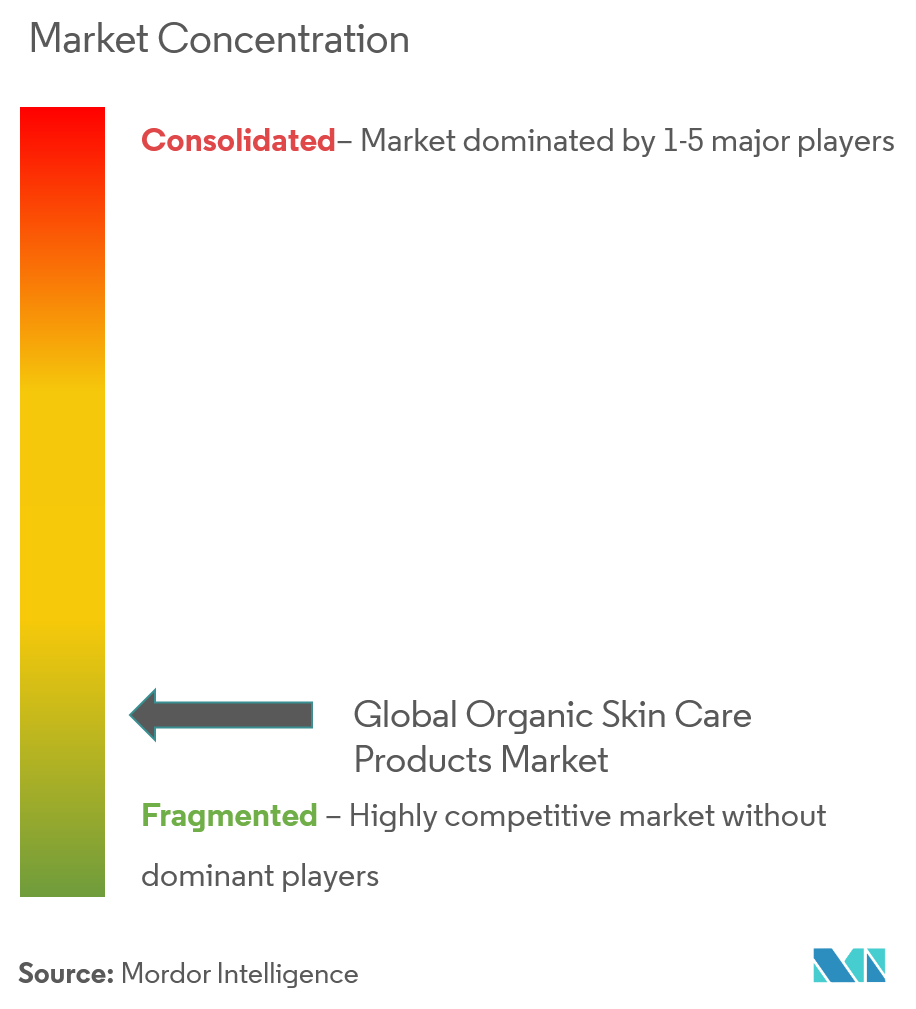Organic Skincare Products Industry Overview
The global organic skincare products market is highly competitive. It comprises regional and international competitors such as The Hain Celestial Group (Avalon Natural Products Inc.), L'Oréal SA, Johnson & Johnson, and others. The major market strategies adopted by the companies are new product launches, agreements/partnerships, expansions, mergers, and acquisitions. Companies are adopting merger and acquisition strategies to utilize their respective key strengths, such as intense R&D activities, distribution network, and the development of new products to enhance the portfolio, capture the untapped markets and drive the organic skincare products market further.
Organic Skincare Products Market Leaders
-
Johnson & Johnson
-
Botanic Organic, LLC
-
Eminence Organic Skin Care
-
Loreal SA
-
The Hain Celestial Group (Avalon Organics)
- *Disclaimer: Major Players sorted in no particular order



